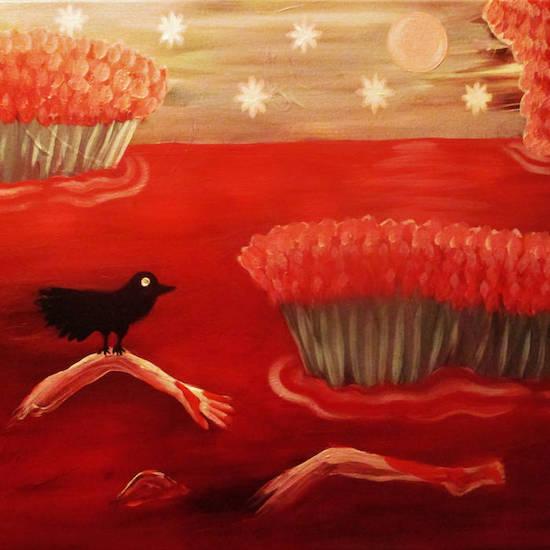For twenty-five years Todd W. Emmert has been making music. Mostly for his own enjoyment. His original lo-fi releases were under his Shortman and Inspector 22 guises. Call it maturing musically or not wanting to hide behind a nom-de-plume, but since 2015 he switched to releasing music under his own name. During this time, he has put out eighteen albums, not counting the three Loose Medicine albums he made with Edward Madill.
Musically, Emmert fits in with cult artists like R. Stevie Moore and Eugene Chadbourne. Working on his own, releasing an incredible amount of music mostly for his own enjoyment. The music is lo-fi, with an outsider charm but there is something undeniably enjoyable out them. At the time of writing this review he has released another three full albums. To call him prolific is an understatement. What is even more remarkable is that his quality does not drop a great deal between releases. His nineteenth album, Unintentionally Marginalized, is Emmert’s finest to date. At thirty-three minutes, it is a tight affair. Brimming with catchy riffs, clever melodies.
As with all his previous releases Unintentionally Marginalized focuses on Emmert’s schizophrenia. Given the heavy nature of the subject, Unintentionally Marginalized is a bouncy affair. The guitars have a delightful twang about them that harks back to a bygone era when Duane Eddy was king. You did not need to write lyrics to have a hit song. The beauty of not having lyrics means that the meaning of each song is down to the listener. ‘Night Drive’ features a tight wound riff over the top of a droning organ and a rhythm that is either played on tambourine or spoons. You could draw a conclusion that the organ is an unending feeling of unease, while the guitar riff are extreme pangs of paranoia that come in waves.
‘A Fine Day for Bananafish’ opens with a glorious riff that repeats throughout. It also feels like a double homage. It takes its title from a JD Salinger short story where the protagonist kills himself at the end and Bananafish was the seminal underground music magazine Seymour Glass used to write and publish. Both featured people who were seemingly living outside of society’s norms, while trying to understand their inner demons.
‘Yuletide Radiation’ is the standout track on the album. The song is built around a descending piano run, with the same chiming rhythm. Over this Emmert delivers a fuzzy hypnotic guitar riff that is scratchy but tuneful. It goes in and out of time with the rhythm. This creates a feeling of unease and plays into his experiences of mental illness. When everything is in time there is a wholly joyous feeling, but when you start to feel it slipping out of control that feeling of unease comes back. However, at no time do you feel that Emmert is not in control of where the song is going.
Unintentionally Marginalized is bursting with positivity. The songs have a twangy Spacemen 3 vibe to them. The compositions are intricate, over-flowing with ideas but not overly dense. Considering that the album is based on the different aspects of Emmert living with his illness, the music is not claustrophobic or unsettling, despite the slightly terrifying artwork. It is full of space which gives the music – and the listener – room to breathe.
This is not necessarily happy music, but neither is it dour. Each song is a joyous explosion. Emmert has made a conscious decision not to dwell on his illness, but instead he finds the positives parts of his life. For almost twenty years Emmet has been releasing forward-thinking music that is not easily categorised or, at times, digestible. What is apparent is that he is a prodigious talent, working on the outer reaches of music. Unintentionally Marginalized is not just the title of his recent album, it is a how he has lived his life.


